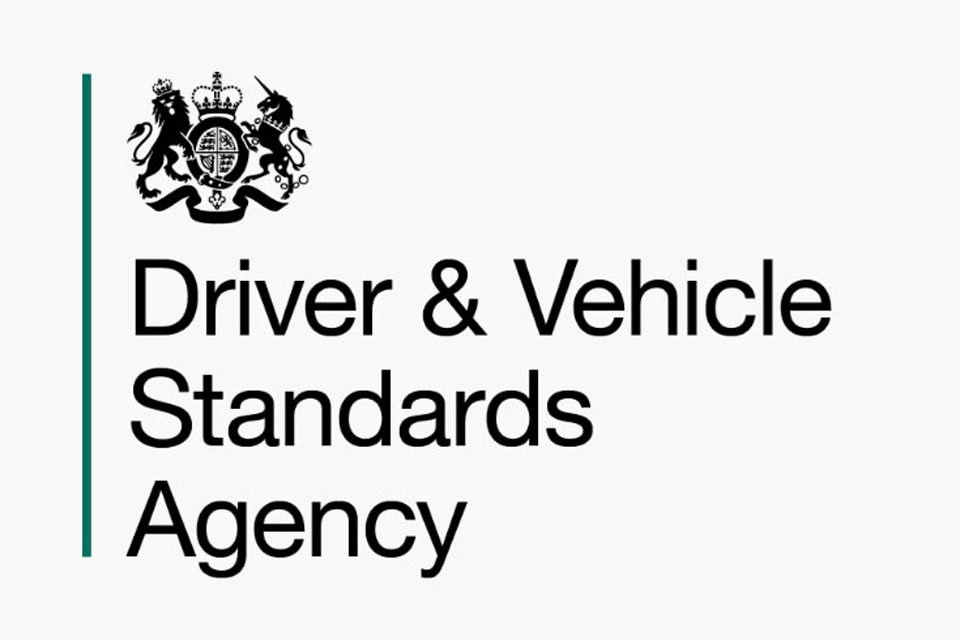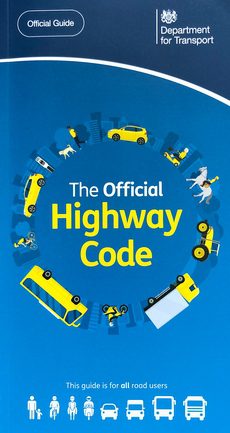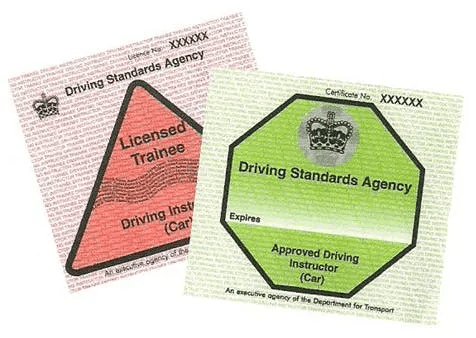
Introduction to Approved Driving Instructors
Definition of an ADI
An Approved Driving Instructor (ADI) is a professional certified to teach individuals how to drive. In the UK, the term ADI is specifically used for instructors who have passed rigorous qualification exams administered by the Driver and Vehicle Standards Agency (DVSA).

To legally charge for driving lessons, an instructor must be registered as an ADI. This ensures that all instructors meet high standards of competence and conduct, providing a benchmark for quality and safety in driver education.
The Role of an ADI in Driver Education
The role of an ADI extends beyond merely teaching the mechanics of operating a vehicle. They play a crucial role in shaping the attitudes and behaviours of new drivers.
ADIs use their expertise to tailor lessons to meet the individual needs of each learner, focusing on safe driving practices, decision-making skills, and road awareness.
This personalised approach helps ensure that learners not only pass their driving tests but also become conscientious, responsible drivers.
Importance of Choosing an ADI for Learning to Drive
Selecting the right ADI is paramount for a successful learning experience. A good ADI provides structured training that builds a learner’s confidence and competence behind the wheel.
They are also equipped to adapt their teaching methods to match the learner’s pace and style of learning, which can significantly enhance the effectiveness of the lessons.
Furthermore, an ADI with a professional and patient demeanour can make the learning process enjoyable and less stressful, which is beneficial for nervous beginners.
The ADI Qualification Process
Overview of the ADI Qualification Pathway
The journey to becoming an ADI involves a detailed and structured qualification process designed to ensure that candidates are well-equipped to teach driving at a professional level.
The ADI qualification pathway comprises three parts: a theory test, a driving ability assessment, and an instructional ability test.
Each component is designed to assess the candidate’s knowledge, driving skills, and teaching capability, respectively.
Candidates must successfully complete each stage and meet the required standards set by the DVSA before they can be registered as an ADI.
Part 1: Theory Test
The first part of the ADI qualification process is the theory test, which is similar to the theory test for learner drivers but at a more advanced level.
It includes multiple-choice questions and a video-based hazard perception test. The questions cover topics such as road safety, driving theory, and the Highway Code.

This test ensures that candidates have a thorough understanding of the rules of the road and safe driving practices, which are essential for teaching others.
Part 2: Driving Ability Assessment
The second part of the qualification process is the driving ability assessment. This practical test evaluates the candidate’s driving proficiency, including the ability to execute advanced manoeuvres and maintain high standards of driving under various road conditions.
The assessment is conducted by a DVSA examiner and is more rigorous than a standard driving test taken by learner drivers.
Candidates must demonstrate a high level of skill, safety, and vehicle control to pass this stage, which underscores their capability to model excellent driving behaviour to their students.

This detailed structure ensures that all ADIs possess not only the driving skills necessary to operate a vehicle safely but also the theoretical knowledge to educate others effectively.
The emphasis on comprehensive training and rigorous testing underpins the trust that learners and the public place in Approved Driving Instructors.
Further Training and Assessment for ADIs
Part 3: Instructional Ability Test
The third and final part of the qualification process for becoming an Approved Driving Instructor (ADI) is the Instructional Ability Test.
This part assesses a candidate’s ability to instruct and convey driving knowledge effectively to learners. During the test, the candidate must demonstrate their teaching skills in a real-world driving environment.
The examiner, acting as a student driver, will assess the candidate’s ability to plan a lesson, communicate instructions clearly, and provide feedback and encouragement.
Successfully passing this test is crucial as it directly reflects the prospective instructor’s ability to educate new drivers safely and effectively.
Continuous Professional Development for ADIs
Continuous Professional Development (CPD) is vital for ADIs to maintain and enhance their teaching skills and stay updated with changes in driving regulations and practices.
Engaging in CPD activities such as attending workshops, taking additional driving qualifications, or participating in training courses helps instructors keep their skills fresh and relevant.
This ongoing learning process not only benefits the ADI but also ensures that their students receive the most current and effective driving instruction.
ADI Standards Check
The ADI Standards Check is a regular assessment that all registered instructors must undergo to ensure they continue to meet the high standards required by the DVSA.
During the check, an examiner observes a normal driving lesson given by the ADI to a real student. The instructor is assessed on their ability to tailor teaching to the student’s needs, promote safe driving practices, and manage the lesson effectively.
Passing the Standards Check is mandatory to maintain registration as an ADI and continue teaching legally.
Legal and Regulatory Framework
Licensing and Regulations
To legally operate as an ADI, one must hold a valid green ADI licence, which is issued by the DVSA following successful completion of the qualification tests.
Licensing and regulations for ADIs are stringent to ensure that only those who are adequately prepared and continually prove their competence are allowed to teach.
ADIs are also required to renew their licence every four years, and they must not have any serious motoring or criminal offences that might disqualify them from teaching.
The ADI Code of Practice
The ADI Code of Practice is a set of professional standards that all ADIs agree to uphold.
This code covers aspects of professionalism, integrity, and responsibility, including maintaining a professional relationship with students, ensuring that lessons are conducted in a safe manner, and keeping their knowledge and skills up to date.
The Code of Practice helps maintain public confidence in driving instruction provided by ADIs and ensures a consistent standard of teaching.

Role of the Driver and Vehicle Standards Agency (DVSA)
The Driver and Vehicle Standards Agency (DVSA) is responsible for maintaining the safety standards of drivers and vehicles in the UK.
This includes regulating ADIs to ensure they provide proper training to learner drivers. The DVSA sets the exams and checks that ADIs must pass to obtain and retain their licence.
It also handles complaints against ADIs and can take action if instructors do not meet the required standards.
The DVSA’s role is critical in ensuring that all road users are safe and that driving instructors maintain high standards of road safety and professional conduct.
Benefits of Learning with an ADI
Structured Learning Approach
Learning to drive with an Approved Driving Instructor (ADI) offers a structured learning approach that is systematically designed to cover all aspects of driving.
ADIs are trained to assess a learner’s capability and tailor lessons accordingly, ensuring that each stage of learning is thoroughly covered before moving on to more complex driving tasks.
This structured methodology helps build a solid foundation of driving skills, making it easier for learners to understand and apply driving rules and techniques effectively.
Safety and Compliance
One of the key benefits of learning with an ADI is the emphasis on safety and compliance with road laws. ADIs are well-versed in the Highway Code and the latest road safety regulations, which they integrate into their teaching.
This education helps learners not only to prepare for their tests but also to become safe, responsible drivers.
Furthermore, ADIs use dual-controlled cars, which allow them to take control in critical situations, thereby enhancing the safety of the learning process.

Higher Success Rates in Tests
Learners taught by ADIs typically exhibit higher success rates in tests compared to those who learn solely with friends or family.
The professional instruction provided by ADIs prepares learners more effectively for both the theory and practical tests.
By focusing on the requirements of the test and common pitfalls, ADIs equip their students with the knowledge and confidence needed to pass their driving tests.
Finding the Right ADI
What to Look for in an ADI
When choosing an ADI, it’s important to consider several key factors to ensure you receive the best possible instruction.
What to look for in an ADI includes their teaching style, patience, professionalism, and ability to communicate effectively. Ideally, an ADI should also be flexible in terms of scheduling and be someone with whom you feel comfortable learning.
A good ADI should encourage you, boost your confidence, and adapt their teaching methods to suit your learning pace and style.

Checking an Instructor’s Qualifications and Reviews
Checking an instructor’s qualifications and reviews is crucial before starting lessons. Ensure that the ADI is registered with the DVSA and holds a valid ADI green badge to be displayed in the training vehicle.
It’s also beneficial to read reviews and testimonials from previous students to gauge the instructor’s reputation and effectiveness.
Many instructors also provide details of their pass rates, which can be an indicator of their success in teaching learners to drive.

Meeting and Assessing a Potential Instructor
Before finalising your choice, meeting and assessing a potential instructor can be very insightful. Arrange a preliminary meeting or a trial lesson to discuss your goals and see how the instructor communicates and explains driving concepts.
This meeting can also be a chance to clarify any concerns such as the lesson plan, duration, and costs associated with learning to drive.
This initial interaction can help determine if the ADI’s approach aligns with your expectations and learning style, which is essential for a successful driver education experience.
The Future of Driving Instruction
Innovations in Driving Education
The field of driving education is evolving rapidly with new innovations that enhance how driving skills are taught and learned.
Virtual reality (VR) and augmented reality (AR) are emerging as powerful tools in driver training, allowing learners to experience complex traffic scenarios and hazardous conditions in a controlled environment.
These technologies provide realistic, immersive experiences that can significantly improve decision-making skills and hazard recognition without the real-world risks.

The Impact of Technology on Driving Instruction
Technology has had a profound impact on driving instruction, transforming traditional methods and introducing more efficient, interactive teaching tools.
From online booking systems for driving lessons to the use of dash cams and mobile apps for tracking progress and providing instant feedback, technology is making it easier for instructors to manage their business and for learners to access personalised learning experiences.
Advanced driving simulators are also becoming more common, enabling instructors to monitor students’ responses to various driving situations and tailor their teaching accordingly.
Predictions for Future ADI Training and Regulation
Looking ahead, predictions for future ADI training and regulation suggest a greater integration of technology and stricter standards for qualifications.
It’s likely that there will be an increased emphasis on continuous professional development, with ADIs required to regularly update their skills in line with new driving technologies and changing road safety protocols.
Regulation may also expand to incorporate standards for the use of tech-based teaching aids, ensuring that all technological tools used are up to standard and contribute positively to the learning process.
Additionally, as autonomous and semi-autonomous vehicles become more prevalent, ADI training will need to adapt to teach students how to interact safely and effectively with these new technologies.
Frequently asked questions
An Approved Driving Instructor (ADI) is a person who has been trained, tested, and registered by the Driver and Vehicle Standards Agency (DVSA) to teach others how to drive legally and safely in the UK.
To become an ADI, you need to pass a three-part exam consisting of a theory test, a driving ability assessment, and an instructional ability test. You must also pass a DBS check and register with the DVSA.
Costs include fees for the three qualification exams, potential training courses, the DBS check, and the registration fee with the DVSA. These costs can vary, so it’s best to check the latest fees on the DVSA website.
The time it takes can vary depending on how quickly you progress through the training and pass the exams.
On average, it can take from six months to two years to fully qualify.
ADIs can teach in the vehicle classes they are qualified for. Most ADIs are qualified to teach Category B vehicles (car and light van), but additional qualifications are needed to teach other vehicle types.
The ADI standards check is a regular assessment that all ADIs must undergo to show they still meet the high standards required for teaching.
It involves an examiner assessing a real lesson provided by the ADI to a student.
ADI registration must be renewed every four years. This involves a straightforward application to the DVSA and ensuring all personal and professional details are up to date.
If you fail the standards check, you usually get two more attempts to pass. Failing all three attempts could result in your name being removed from the ADI register, and you would have to requalify.
No, you cannot legally charge for driving lessons unless you are an ADI or a trainee under a licensed training program with a valid trainee licence (also known as a pink badge).
You can search the DVSA online database for registered ADIs in your area. It’s also advisable to read reviews, ask for recommendations from friends or family, and meet with the ADI to discuss your learning needs before beginning lessons.


